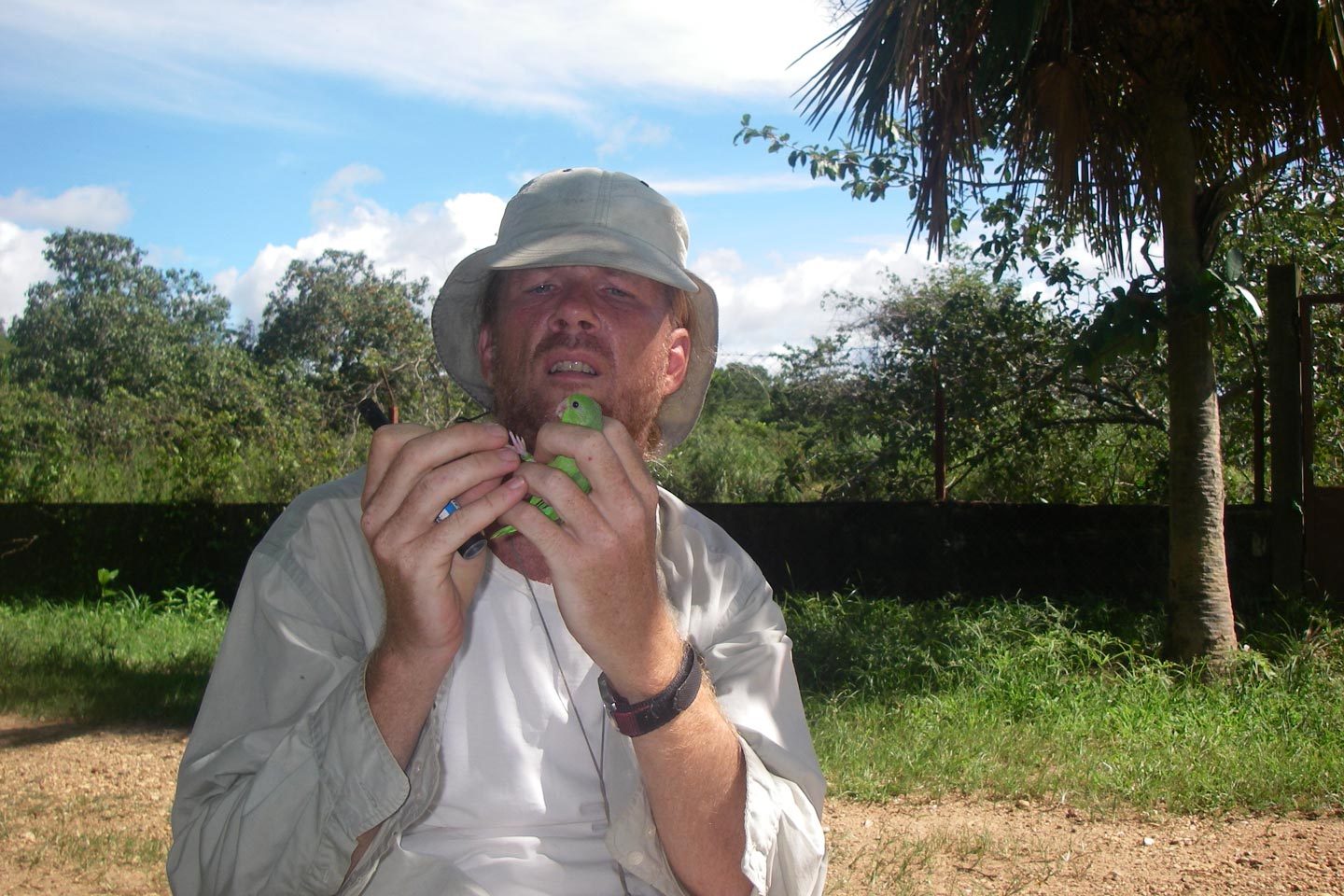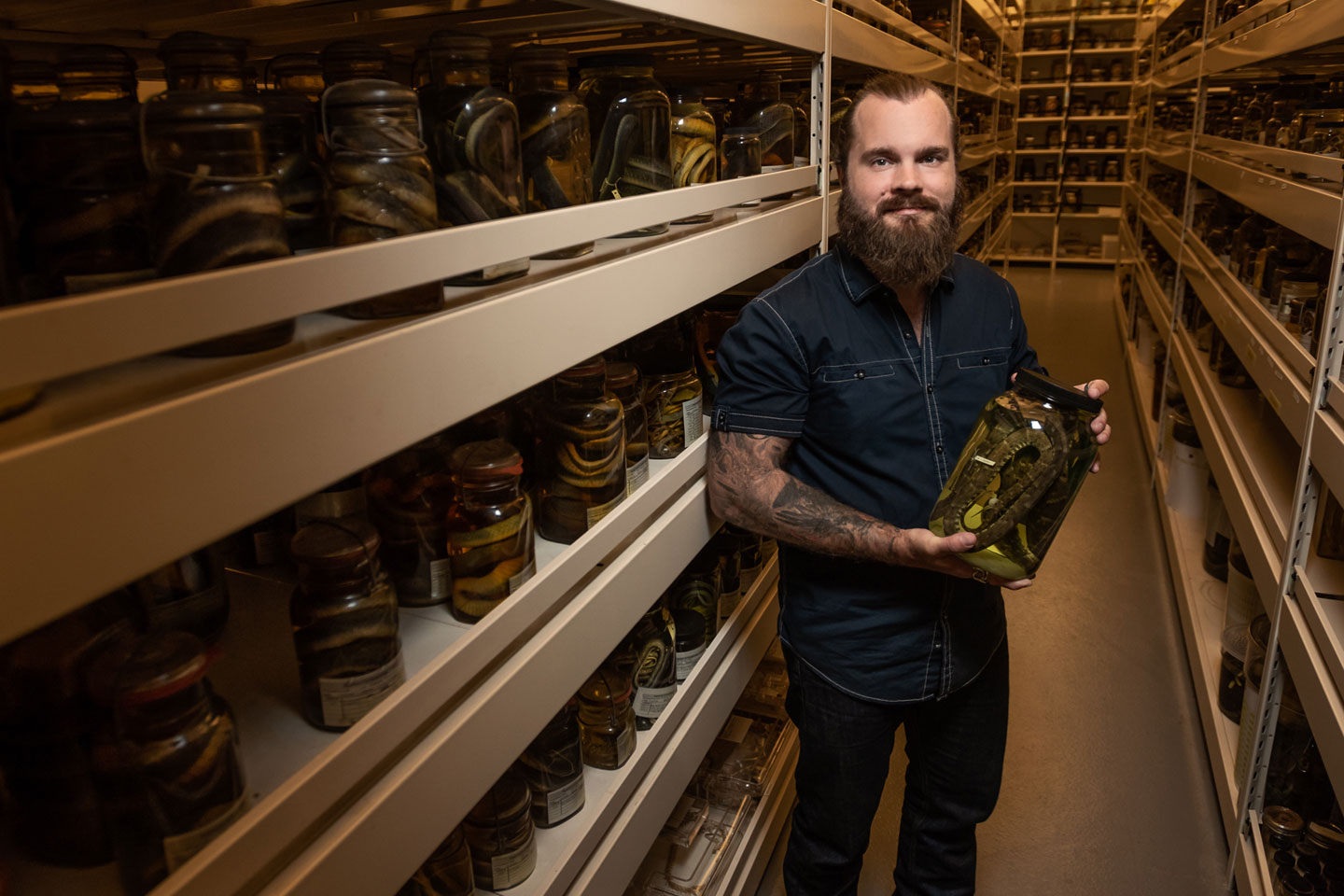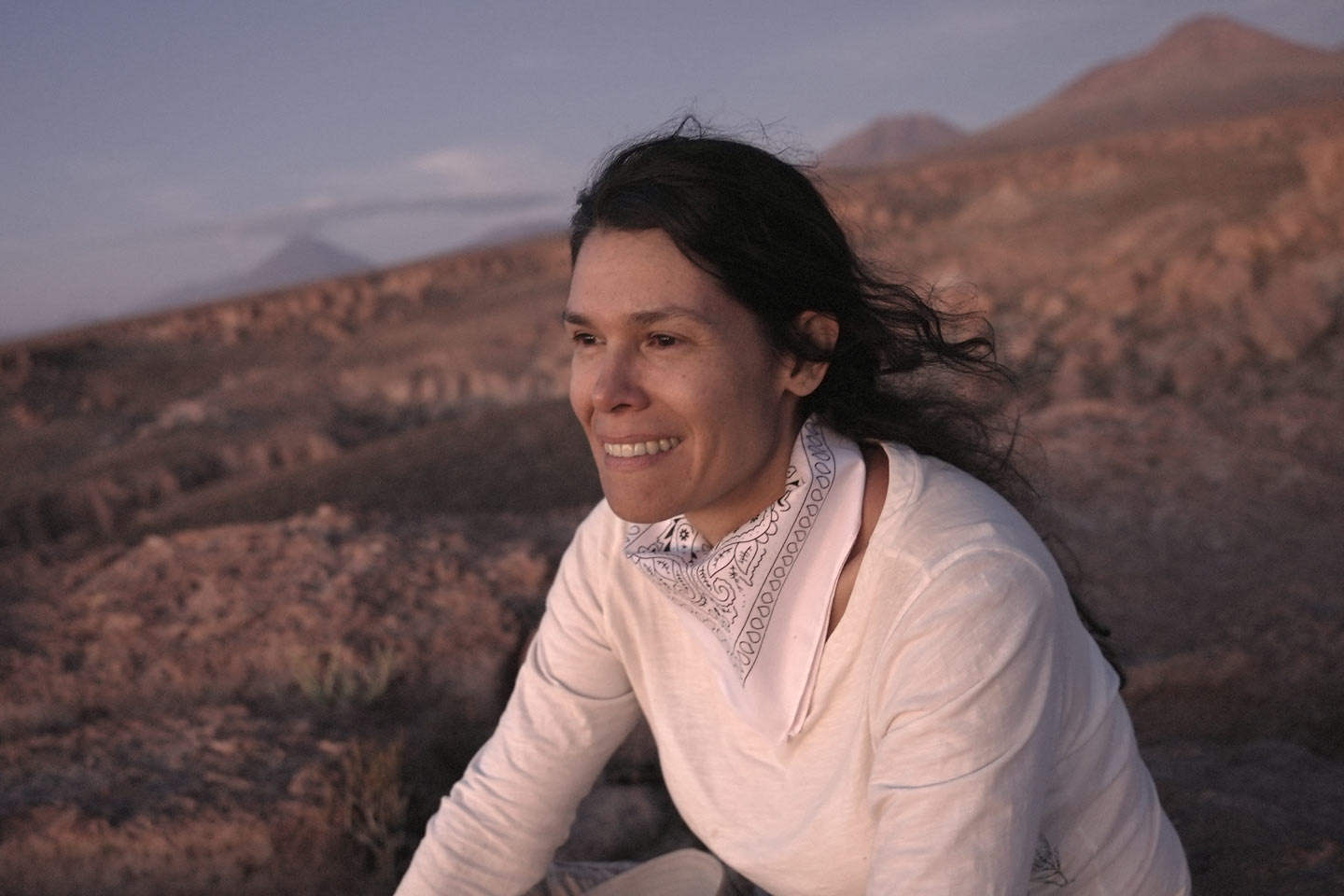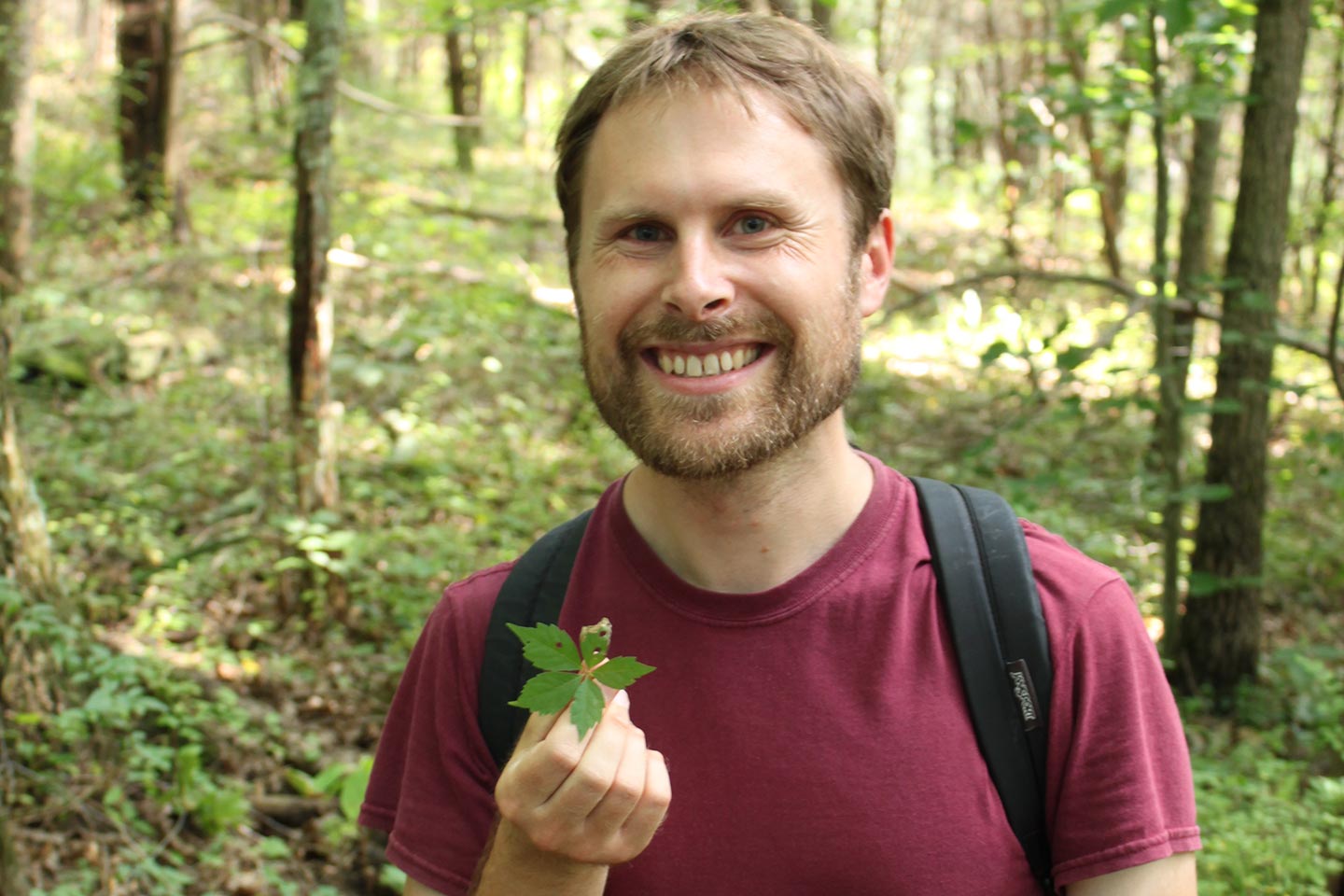Karl Berg
he/him Field Biologist The University of Texas Rio Grande Valley

Karl Berg’s field work has advanced our understanding of how birds communicate. Shortly after concluding his Ph.D., Berg took over the long-term green-rumped parrotlet study, initiated by Steven Beissinger in the Llanos of Venezuela. Parrots, with their colorful tropical plumages and charismatic “talking,” represent the pinnacle of behavioral and vocal complexity among birds. For this reason, the illegal pet trade targets them and, along with habitat destruction, is driving several species to extinction.
In his work with the parrotlets, Berg poses and considers creative questions, such as how each nestling within each nest developed their own unique “signature” call. Do they learn vocal templates from parents? Do genetics play a role in development of each of the five or six nestlings’ calls? By conducting careful experiments of swapping nestlings between nests, Berg found that the nest environment (learning component) was more important than the genes inherited from parents in the development of each individual´s vocal signature. Berg has taken the field project in new directions, using video filming inside nests to record nestlings as they go through the process of developing language. The wealth of accumulated data, including more than 10,000 hours of AV recordings, has allowed Berg to examine how endocrine physiology and stressors affect brain areas associated with language learning.
Berg’s curiosity is leading him to address critical issues about parrots’ development language acquisition, and the research may shed light not only on the evolution of bird song, but also the evolution of human speech.
You Might Also Like


